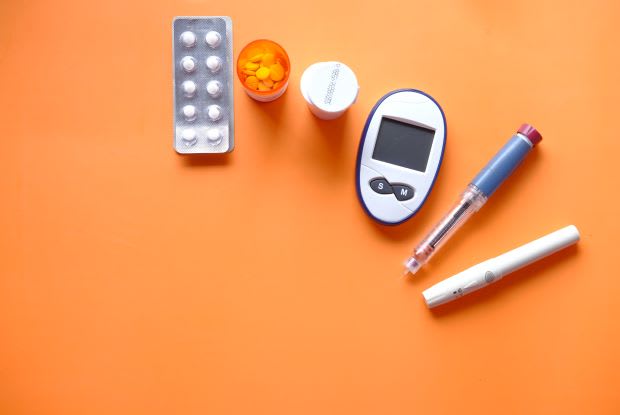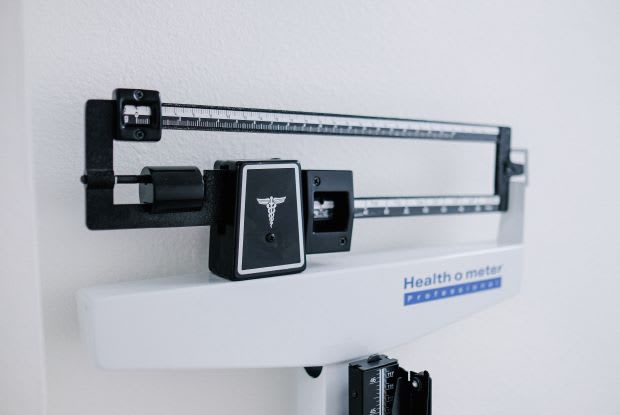Table of Contents
I. Diabetes and Erectile Dysfunction
III. Depression & Mental Health Problems
If you experience erectile dysfunction, you are not alone. Over 30 million men are currently affected by erectile dysfunction in the United States. [1] By definition, ED is a condition that renders you unable to achieve an erection firm enough to engage in sexual activity. For many men, ED may occur every once in a while, which is usually not a cause for concern. But for others, ED may be chronic.
Typically, chronic ED does not occur out of the blue and usually has a diagnosable cause. If you are experiencing ED, your doctor may prescribe erectile dysfunction medications like generic Cialis or sildenafil pills. Read on to learn more about the most common risk factors for ED.
Diabetes and Erectile Dysfunction
Diabetes, like ED, is a prevalent condition in the United States. Unfortunately, those with diabetes are at a much higher risk of experiencing ED throughout their life. Approximately 34 to 45 percent of adult men with diabetes are affected by erectile dysfunction. [2]
When a man is aroused, nitric oxide is released into the bloodstream and causes the penile muscles to relax and blood vessels to dilate, allowing more blood into the penis to achieve an erection. It has been found that those with diabetes release less nitric oxide. Unstable blood sugar levels can also affect the blood vessels and cause them to narrow, which can make it more difficult for blood to enter the penis. It is essential to stay on top of your diabetes treatment plan to ensure that you do not suffer from complications like ED. If you want to ensure that your diabetes does not affect your sex life, you can also eat a healthy diet and lose excess weight to prevent sexual dysfunction. Obesity can affect all aspects of your life, including your sexual health. Over 35 million men are obese in the United States, and these numbers are expected to rise with each passing year. [3] Obesity is classified based on a person’s body mass index (BMI), measured by a person’s weight divided by their height. A healthy BMI is between 18.5 and 24.9, overweight is 25-29.9, and anything over 30 is considered obese. This is a screening method for weight, but please remember that your healthcare provider is the one who can determine if your weight is healthy or unhealthy. Obese men are also more likely to have low testosterone. Low testosterone and erectile dysfunction are not mutually exclusive, but ED can be a symptom of low testosterone levels. Researchers have found that obesity is the cause of several conditions that also increase your risk of erectile dysfunction. Obesity is a health risk and increases your likelihood of cardiovascular problems and diabetes. If you are living with obesity and diabetes, your chances of ED are increased two-fold. Research has found that 79 percent of men presenting ED symptoms have a BMI of 25 or greater. [3] Obesity is an independent factor in the development of ED but may be compounded by the adverse health effects that obesity brings. Obesity and diabetes are physical causes of ED, but the state of your mental health can directly impact your sex life. If you are experiencing symptoms of erectile dysfunction, you should talk to your doctor to determine the exact cause. If no physical problems are present, your healthcare provider may inquire about any stress or depression you are experiencing. The mind is a powerful thing, and if you are stressed about work, money, or relationships, you may be unable to get an erection fully. Stress not only affects the mind but the entire body. Prolonged stress may develop into depression over time, so it is essential to seek help for chronic stress before it affects your everyday life. Depression may be situational, but for others, depression is a chronic condition that requires prescription intervention. If you have been diagnosed with depression and begin to notice ED when you begin antidepressants, you should talk to your doctor. Your doctor may alter your dose to ensure it does not affect your sex life. It is well known that achieving an erection may be difficult if a man is intoxicated, but prolonged alcohol use may create chronic symptoms. When you are drunk, the signals between the brain and body are slowed, causing ED. Alcohol also causes dehydration, which reduces the circulation of blood to the penis. These symptoms are common with alcohol use and may happen every once in a while, but you may need to examine your alcohol use if they occur frequently. If you notice that your drinking is beginning to make a difference in your sex life, your healthcare provider may be able to make a treatment plan that combines curbing your drinking and taking ED medications like Cialis and Viagra. Smoking can also wreak havoc on your sexual health over time. Like diabetes, smoking can narrow your arteries and make it harder for blood to flow to the penis. On top of vascular issues, cigarettes contain thousands of chemicals that affect all aspects of your health. This may also affect a man’s ability to have children because these habits can increase the correlation between erectile dysfunction and infertility. Luckily, these risk factors can be fixed with the proper lifestyle changes made sooner, rather than later. The content in this article is intended for informational purposes only. This website does not provide medical advice. In all circumstances, you should always seek the advice of your physician and/or other qualified health professionals(s) for drug, medical condition, or treatment advice. The content provided on this website is not a substitute for professional medical advice, diagnosis, or treatment.
Obesity and Erectile Dysfunction

Depression & Mental Health Problems
Smoking & Alcohol Use


